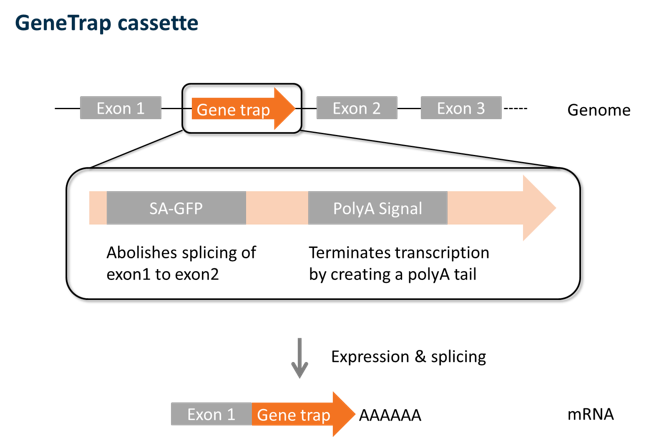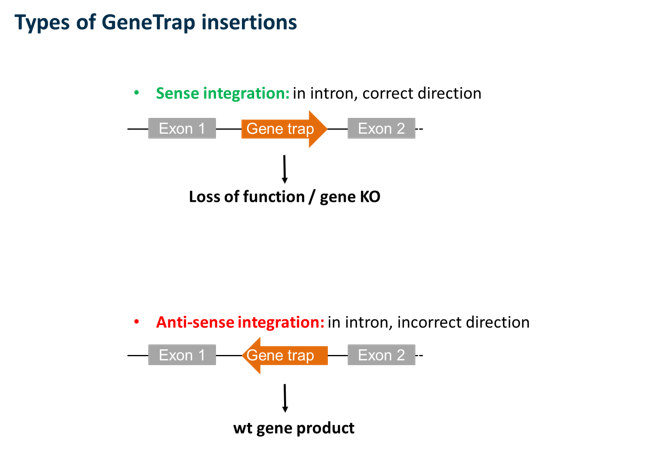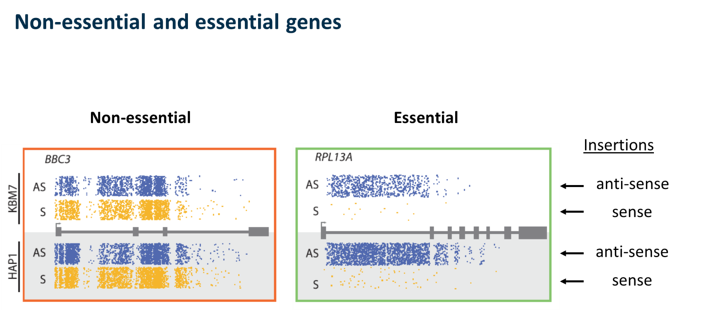Essential genes are defined as genes that are critical for the survival of an organism. These are considered to be genes that are absolutely required for the cell to grown, proliferate and survive. Deletion of an essential gene from a cell eventually leads to the death of this cell or a severe proliferation defect. As a consequence, it is impossible to generate cells with a knock-out or deletion of essential genes.
In a breakthrough study, Blomen et al. (Science, 2015) used extensive mutagenesis to describe the complete set of essential genes in the human HAP1 cell line.
Mutations were generated by the random introduction of a gene-trap cassette that interferes with correct splicing.

As this gene-trap cassette was designed in a unidirectional way, only intronic insertions in the sense strand will interfere with splicing and result in a functional knock-out of the corresponding gene product. In contrast, intronic insertions in the anti-sense direction will not result in the loss of the corresponding gene product.

Consequently, the ratio of anti-sense versus sense insertions serves as a good measure for gene essentiality. A neutral gene, whose deletion will not have an impact on cell survival, will have a roughly equal number of anti-sense and sense insertions. However, any essential gene will have a much higher number of anti-sense insertions as cells with sense insertions of the gene trap cassette in the essential gene will not survive.

By analyzing more than 60 million gene-trap insertions, Blomen at al. identified a core set of about 2000 essential genes, which are required for viability or optimal fitness in the Hap1 cell line.
